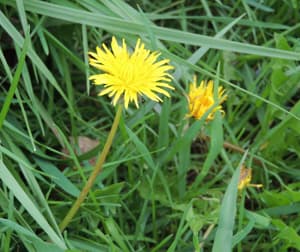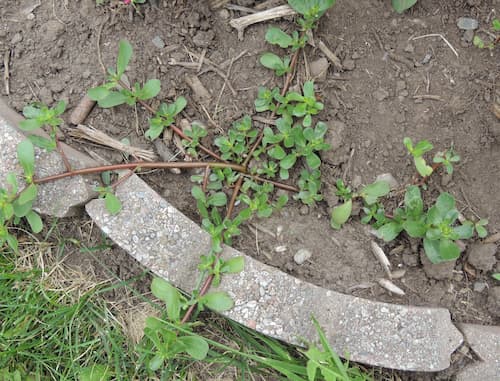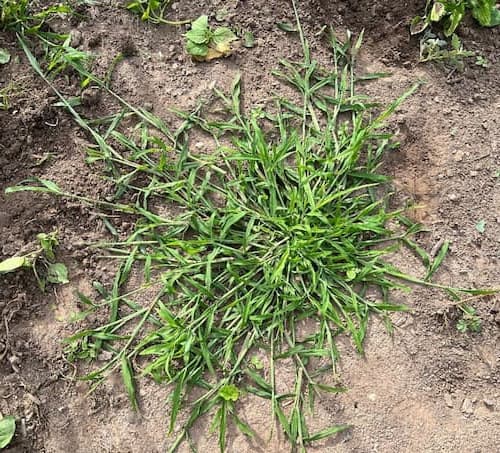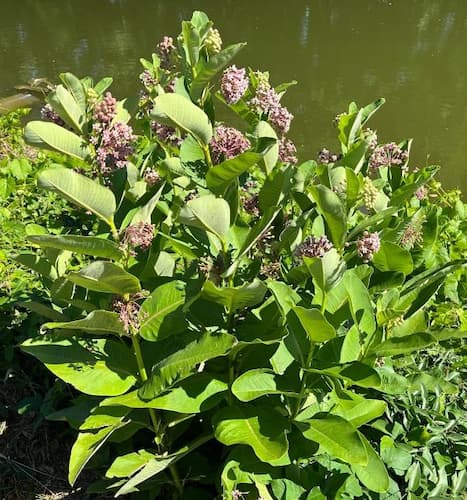How to Control Weeds

Weeds, Who Wants Them!?
We talk about everything else in the gardening world, so we are devoting a page to the topic of how to control garden weeds. Why? Because the subject of controlling weeds is an important one. There’s far more to the subject than grabbing the weed eater and going after them. Granted, this article is of more value to the new gardener. However, even an experienced gardener picks up a new trick or two on occasion.
Let’s begin with a definition……..
Definition of a Weed: Any plant that is not in a place where you want it to be. Even edible, medicinal, herbal plants, and even flowers, are considered weeds to those who don’t want them where they pop up.
“What is a weed? A plant whose virtues have never been discovered.” – – Ralph Waldo Emerson
Of all the gardening tasks, weeding is the task we like the least. It is also the most labor-intensive and at times, a seemingly never-ending task. But when we are done, our garden looks much better, and your plants will thank you for it with higher production, healthier plants, and a victory garden you can be proud to show off to friends and family, or just enjoy a quiet moment by yourself.
You know the old saying: “One gardener’s weeds, is another gardener’s treasure.” To illustrate, Some weeds have medicinal value. while others are edible.
Tip: Make weeding simple, use a weed barrier. Make gardening easier still… lay down a drip irrigation hose underneath the barrier.
Did You Know? Even weeds get their day! See Weed Appreciation Day.

Edible Weeds
Many plants home gardeners and homeowners consider “weeds” in the garden or lawn. Actually, many of these plants are edible. Here are some examples:
Clover – We don’t want them in our lawns. So, try them in your salad.
Dandelions – These edible, flowering plants are unwanted in our lawns. Also, most gardeners say dandelions are nothing more than a weed in the flower and vegetable garden. However, many famous chefs recognize the culinary value of dandelions. In addition, some vintners make dandelion wine.
Purslane – Not many people know that purslane is edible. This very common weed has edible leaves, stems, and seeds. It is highly nutritious and tastes like spinach or watercress. In addition, it has medicinal uses.

Noxious and Invasive Weeds
There’s no shortage of this kind of plant. For example, Gardeners grow horseradish as a food crop. However, uncontrolled it is very invasive and can spread to your lawn and other parts of the garden. Bamboo is a valuable ornamental landscape plant. On the other hand, they become a weed when they invade your lawn or garden.
Here are some plants we all can agree are invasive and noxious:
Crabgrass – This plant is found around the world. Once it gets into your lawn, it is hard to control.
Giant Hogweed – Found in fields and woods, this plant is a highly toxic and invasive plant. If you see it, contact your local Cooperative Extension Service so it can be eradicated.
Ground Ivy – This perennial vining plant is among the toughest plants and is resistant to most lawn weed killers. It is a very aggressive plant
Milkweed – It’s great for butterfly gardens. However, it is toxic to humans and many animals. Keep children and pets away from this plant.

How to Weed
There are a lot of ways to control weeds your garden. The best way remains to get down on your hands and knees and pull them by hand, or with the assistance of a small hand tool. Getting close to your plants allows you to pull and remove weeds with minimal disruption to your plants. While you are there, it provides a closer look at your plants. If your plant has pest or disease problems, this closer view allows early detection and attention to the problems.
One final advantage is the joy and pleasure of getting soil under your fingernails. This is a feeling only a gardener (or a kid) can fully appreciate or explain.
Pull even the tiniest weeds. It’s better to get ’em while they are small. Those tiny little ones are the monsters of the patch a week or two from now. The weeds that are in between your plants and close to them are robbing your plant of moisture and nutrients. More often than not, the weed wins the battle. While some weeds can be eliminated by snipping them at the base, most will require pulling out all of the root systems. When working close to the plant, be careful not to disturb the plant’s root system. Some weeds can be pulled out easily, while others break off when you tug at them. This is a defensive device of the plant, allowing it to survive and grow new stems and leaves. Make sure to get it all.
Use gardening tools to eliminate weeds along the rows and away from the plants. Be cautious to avoid getting too close to the roots of your plants. Tools that scrap the soil just below the surface are good for the middle of the rows.
Weeding Tip
Dry, sunbaked soil is often hard, making a difficult job even more difficult. Water your garden a few hours before you begin. The soil will be looser, making the job easier.
When to Weed
Experienced gardeners know the answer to this is every day and all the time. There is always a new weed popping up and ruining the perfect look of your victory garden. If you are not a perfectionist, that’s okay. Most of us have more than a few weeds, as we don’t have enough time for this dreaded task.
Weeding should be done early and often. Don’t let the task get ahead of you. Those little weeds that “can wait until next week”, are monsters next week.
Weeding is better done early in the day. It is cooler for you, and a little easier on your plants, as the roots are often disturbed. Any weeds left on top of the soil will more easily dry out and die in the hotter midday sun.
Don’t Toss ’em….. Compost ’em – Most plants make great compost. That way, you are returning natural nutrients to your soil. Throw them into your composter or compost heap. Avoid weeds with lots of seeds on them, and any diseased weeds.
The Value of Mulch
Looking for an easy way to control weeds!? Mulch is priceless when it comes to controlling weeds and saving you time. Weeds that succeed in poking through a thick layer of mulch is a barrier to the emergence of weeds. The ones that do get through, are easier to pull out. Mulch also provides a “well kept” look.
Whether you use organic mulch or plastic, it is a very effective barrier. Organic mulch needs to be put down thickly to keep the unwanted plants from poking through. It needs to be re-applied regularly.
Plastic mulch keeps all weeds out and for a long time. But it is not environmentally friendly and returns no nutrients into your soil.
Did you know? You can use paper as a mulch? Spread it around in a few layers. You also can use leaf recycling bags. If you pick up leaf bags in the fall from other yards, keep the bags in your shed until spring. Add a light layer of mulch on top of the bags to cover them. If you don’t have mulch, use soil or other materials to keep the paper from blowing around.
Read more on mulches.
Weed Killers and Herbicides
Weed killers and herbicides are in common use on lawns, in flower gardens, and vegetable gardens. For some applications, they are the fastest and most efficient, if not least expensive method.
Weed killers and herbicides are not without their disadvantages. They are harmful chemicals. While they may be approved by the U.S. government for use, these chemicals are not without some risk. They can be harmful to your plants, the environment, and you. This is especially true if used incorrectly.
We neither recommend use nor abstinence from using these chemicals. We encourage common sense and caution. If you are inclined to use them, make sure to follow the precautions on the label and apply them correctly.
Most home gardeners do not use weed killers and herbicides in their vegetable gardens. Following the principle “you are what you eat”, why risk harm when a little extra effort you get the same effect. Overwhelmingly, home gardeners state one reason they grow fruits and vegetables is to control the quality of the food they eat.
There's Reason to Cheer. We have Unexpected Allies
While we talk a lot about garden pests, you do have some allies in the insect and animal kingdom. Some good examples are birds that eat insects and grubs. Bats are among this group. There are also beneficial insects, like ladybugs and praying mantis, that chow down on harmful insects. Make sure your animal and insect control program considers the use of these beneficial garden helpers.
Related Articles
Please support our site. Shop for:
- rmmatthews100@hotmail.com
- 585-721-6528
- Rochester, NY
©1999-2024 GardenersNet.Com, All Rights Reserved

